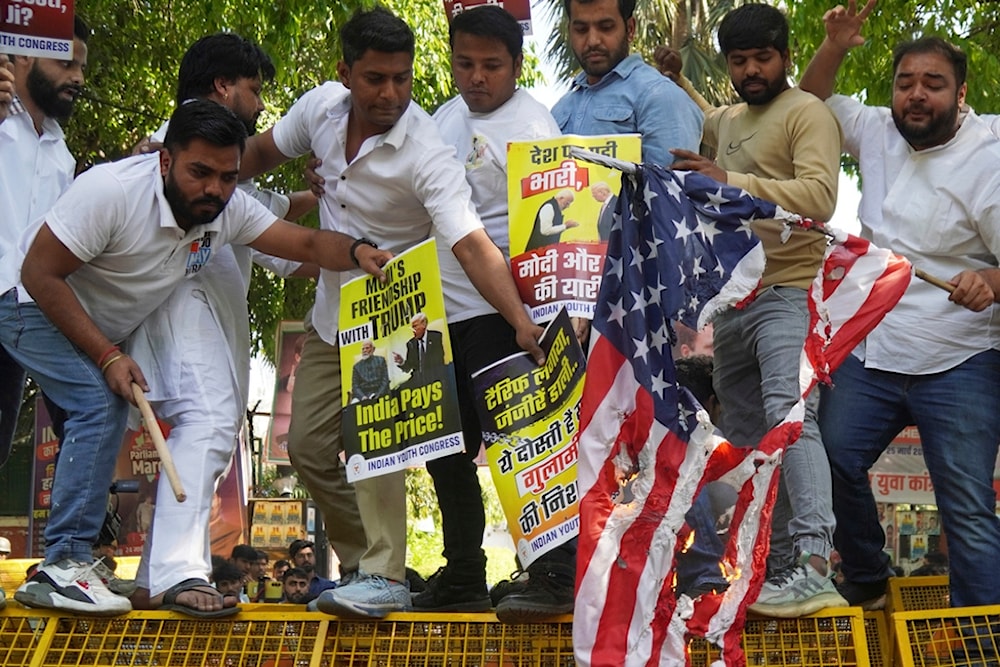India seeks trade deal over retaliation amid US tariff hike
India's decision to abstain from retaliation also stands in contrast to the European Union's planned response to the escalating US–China trade row.
-

Members of Indian Youth Congress, one burns a US flag, during a protest against recent tariffs announced by President Donald Trump, in New Delhi, India, Saturday, April 5, 2025 (AP Photo/Dinesh Joshi)
India will not impose retaliatory tariffs in response to US President Donald Trump's recent decision to slap a 26% duty on imports from the country, a senior government official informed Reuters.
The official, who spoke on condition of anonymity due to the confidentiality of the talks, said India is exploring a clause in Trump's executive order that provides leeway for countries that "take significant steps to remedy non-reciprocal trade arrangements." India believes its recent policy adjustments and willingness to negotiate place it in a strong position to qualify for such an exemption.
A second official noted that India is in a comparatively advantageous position relative to other Asian economies like China, Vietnam, and Indonesia, which have been hit with even steeper tariff hikes. With bilateral discussions between India and the US already underway since February, Indian officials believe this early engagement could help shape a more favorable trade outcome. Both sides are aiming to finalize an agreement by autumn 2025.
India's decision to abstain from retaliation also stands in contrast to the European Union's planned response to the escalating US–China trade row. Like Taiwan and Indonesia, India has opted for diplomatic restraint, choosing not to introduce countermeasures.
Trade Diplomacy
In recent months, New Delhi has taken deliberate steps to demonstrate goodwill toward the US administration. These include reducing import tariffs on high-end motorcycles and bourbon—products closely associated with American exports—and withdrawing a contentious digital services tax that had affected major US tech companies.
Nevertheless, the economic impact of the new tariffs could be significant. According to analysts, India's GDP growth could slow by 20 to 40 basis points this fiscal year as a result. Particularly vulnerable is the diamond industry, which exports more than a third of its output to the US The tariff shock could disrupt operations and threaten thousands of jobs in this labor-intensive sector.
Indian suppliers across industries are already feeling the pressure. US-based buyers have begun pressing manufacturers, especially in textiles and garments, to absorb part of the additional cost. Despite the challenge, some Indian exporters are cautiously optimistic: competitors like Vietnam and Bangladesh are facing even higher duties, which could make Indian goods more attractive in relative terms.
Read more: US trade partners threaten to escalate trade war amid tariff onslaught
To mitigate further disruption and secure a stable trade framework, Reuters recently reported that New Delhi is considering additional tariff reductions on US imports valued at up to $23 billion. Such measures are seen as part of a broader strategy to defuse tensions and avoid deeper economic harm while preserving India's access to the vital US market.

 3 Min Read
3 Min Read









